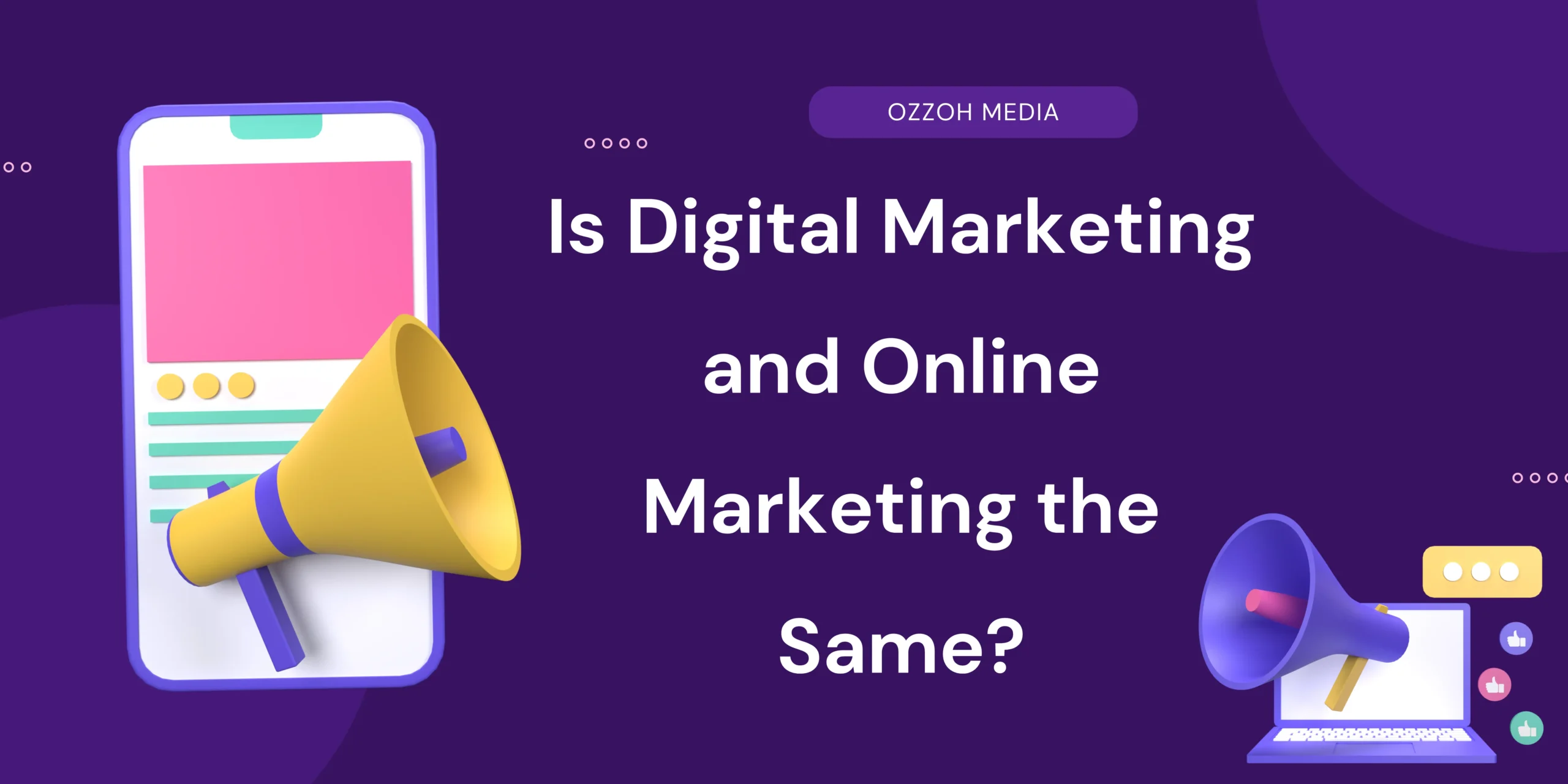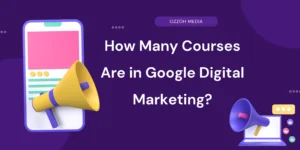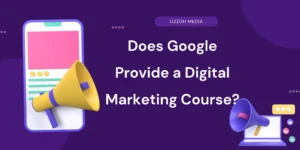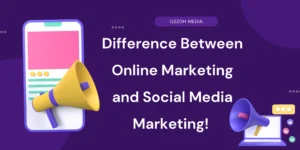In today’s fast-paced, tech-driven world, marketing terms are often used interchangeably, which can cause confusion. Two such terms—digital marketing and online marketing—are frequently misunderstood. Are they the same? While they are closely related, they aren’t exactly identical. In this article, we’ll explore the differences and similarities between digital marketing and online marketing to help you better understand these essential marketing concepts.
What is Digital Marketing?
Digital marketing is an umbrella term that refers to the use of digital channels and technology to promote products, services, or brands. It encompasses both online and offline marketing strategies. Digital marketing includes various methods such as:
- Search Engine Optimization (SEO)
- Social Media Marketing
- Email Marketing
- Content Marketing
- Pay-Per-Click (PPC) Advertising
- Mobile Marketing
- Display Advertising
- Digital Billboards
- Television and Radio Ads
As you can see, some aspects of digital marketing, like TV and radio ads or digital billboards, can occur offline but still use digital technology to reach consumers.
What is Online Marketing?
Online marketing, also known as internet marketing, is a subset of digital marketing. It focuses solely on promoting products and services via the internet. This means that all online marketing efforts happen within the digital space and require an internet connection. Key components of online marketing include:
- SEO (Optimizing a website to rank higher in search engine results)
- Social Media Marketing (Promoting content on platforms like Facebook, Instagram, and LinkedIn)
- Email Marketing (Sending targeted messages to customers via email)
- PPC Advertising (Running ads on platforms like Google Ads or Bing Ads)
- Affiliate Marketing (Partnering with affiliates to promote products)
- Content Marketing (Creating blog posts, videos, and other digital content)
In short, if the marketing strategy involves an internet connection, it’s considered online marketing.
Differences Between Digital Marketing and Online Marketing
1. Scope
The primary difference between digital marketing and online marketing is their scope. Digital marketing covers all marketing efforts that involve digital technology, including both online and offline methods. In contrast, online marketing is limited to internet-based activities. For example, while email marketing is considered both digital and online marketing, a digital billboard would only be part of a digital marketing strategy, not online marketing.
2. Tools and Channels
Digital marketing includes a broader set of tools and channels. It encompasses online channels such as websites, social media, and email, as well as offline digital methods like TV ads, SMS marketing, and digital out-of-home (OOH) advertising. Online marketing focuses exclusively on channels that require internet access, like social media, SEO, and PPC.
3. Reach and Accessibility
Digital marketing allows businesses to reach their audience through a variety of digital touchpoints, whether they are connected to the internet or not. For example, digital billboards, mobile text message campaigns, or even TV commercials can reach audiences who may not be online at the moment.
Online marketing, however, is limited to reaching people who are using the internet at that time. For businesses that rely heavily on internet-connected users, such as e-commerce sites, online marketing may suffice. But for businesses wanting to target a broader audience, digital marketing’s diverse channels offer wider accessibility.
Similarities Between Digital Marketing and Online Marketing
1. Data-Driven Approach
Both digital and online marketing rely heavily on data to optimize campaigns and track performance. Metrics such as website traffic, click-through rates, conversion rates, and customer engagement help businesses fine-tune their strategies. Whether through digital or online methods, marketers can gather valuable insights that allow them to understand their audience better and improve the effectiveness of their campaigns.
2. Target Audience
In both digital and online marketing, targeting the right audience is key. Whether you’re running PPC campaigns, optimizing for SEO, or managing social media accounts, the goal is to reach your target customers. Both marketing types use demographic, behavioral, and psychographic data to tailor messages and increase the chances of conversion.
3. Content Creation and Distribution
In both digital and online marketing, content plays a significant role. Content marketing is a major part of both strategies, involving the creation of blog posts, videos, infographics, and more to engage potential customers. Additionally, both types of marketing use various distribution channels to spread this content, whether through email, social media, or display ads.
Which One is Better for Your Business?
The choice between digital marketing and online marketing depends on your business goals and the type of audience you’re trying to reach. Online marketing is ideal for businesses that operate primarily on the internet, such as e-commerce websites, SaaS companies, or digital services. This method allows you to target internet users specifically, providing better reach to those who are already active online.
On the other hand, digital marketing offers a more comprehensive strategy by combining online and offline methods. If your business serves a wider audience and you want to engage with them through various touchpoints—whether online or offline—digital marketing may be more effective. For example, local businesses that want to combine digital billboards with social media ads can leverage both forms of marketing to reach customers in multiple ways.
Conclusion
While digital marketing and online marketing are closely related, they are not exactly the same. Digital marketing encompasses a wider range of strategies, both online and offline, while online marketing is focused solely on internet-based methods. Understanding the differences between these two concepts can help businesses create a more targeted marketing strategy, based on their goals and audience.
In today’s digital world, having a strong online presence is essential, but combining it with offline digital strategies can amplify your reach and drive better results. Whether you choose digital marketing, online marketing, or a blend of both, the key is to stay adaptable and customer-focused.




